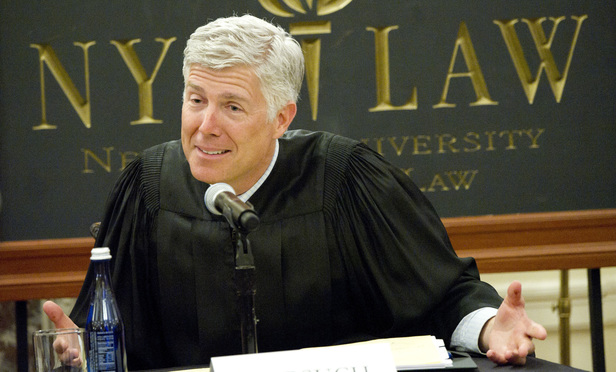How SCOTUS Pick Gorsuch Ruled on Cannabis Cases

In his second week of office, President Trump nominated Judge Neil M. Gorsuch to fill the vacant Supreme Court seat. Like Antonin Scalia, whom he would replace if confirmed by the Senate, Gorsuch is a conservative constitutionalist. He currently serves as a judge at the U.S. Court of Appeals for the 10th Circuit in Denver.
Gorsuch has ruled on several marijuana-related cases. In the 2015 case, Neil Feinberg et al. v. Commissioner of Internal Revenue, Gorsuch decided in favor of the IRS because the plaintiff failed to show that “without an immediate remedy they will face an irreparable injury.”
Gorsuch also acknowledged the “mixed messages the federal government is sending these days about the distribution of marijuana,” and indicated his familiarity with the complex conflict between state and federal laws and the Cole and Ogden memos regarding marijuana policy issued by President Obama’s Justice Department.
In 2013, Gorsuch ruled against the family of a dead man, Ryan Wilson, who was fatally Tased by a police officer after he admitted that he possessed cannabis plants. Wilson’s parents sued the police department for using excessive force and lost. In 2010, he ruled against a couple that claimed religious freedom as a defense against the charge of possession with intent to distribute marijuana.
However, when it comes to the Fourth Amendment, Gorsuch has a more moderate record. In a case where an officer found a pound of meth in a car, the judge ruled that the drugs were inadmissible as evidence and that the officer violated the defendant’s Fourth Amendment rights by relying on a license plate database that was known to be faulty.
While none of these cases shed much light on what he really thinks about cannabis, one of his former students at the University of Colorado Law School, where Gorsuch has taught since 2008, says the judge told him a couple of years ago that he’s for “the federal government getting out of the business of prohibiting it,» according to The Joint Blog.
Feb. 13 update: Tom Angell at MassRoots reports that the University of Colorado has no record of the student quoted in The Joint Blog article, Michael Bli, attending the school. The website’s editor-in-chief Anthony Martinelli says Michael Bli is a pseudonym.
If you enjoyed this Freedom Leaf article, subscribe to the magazine today!

